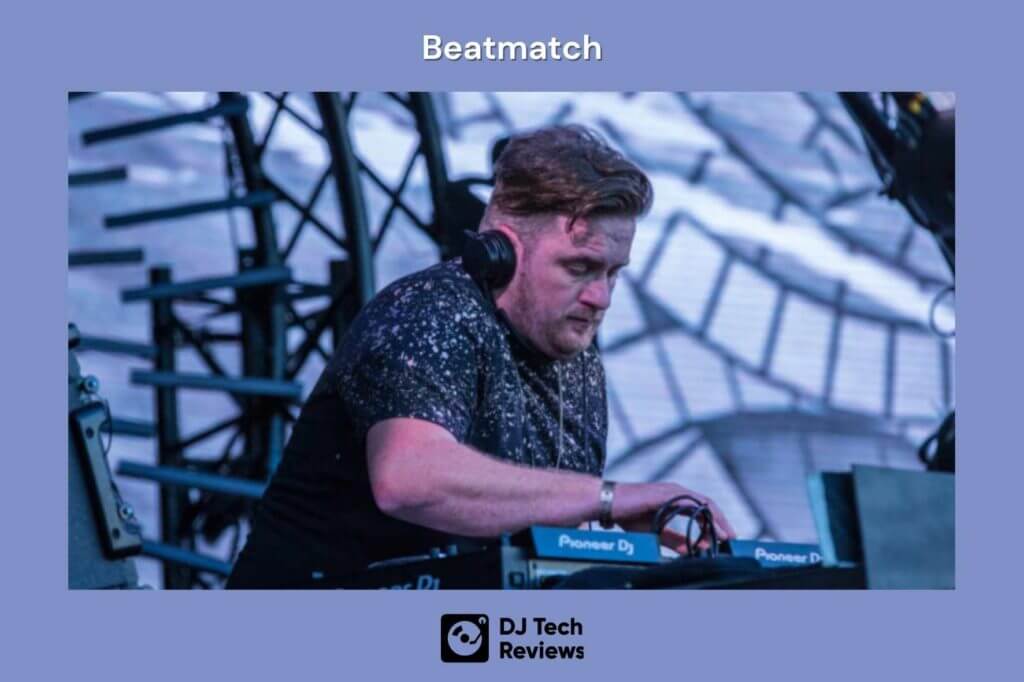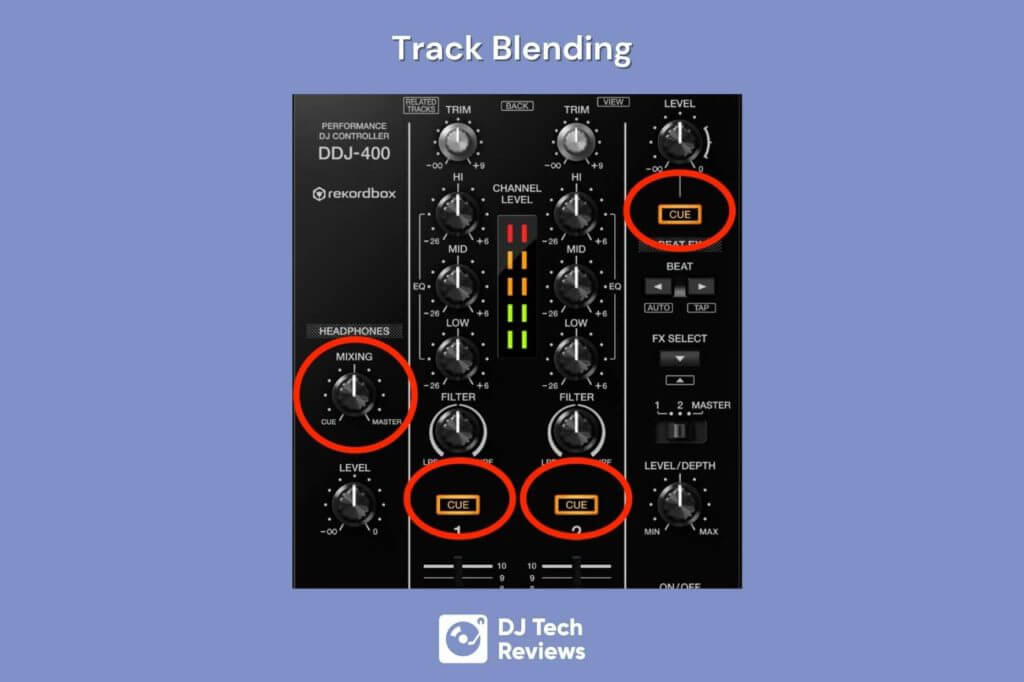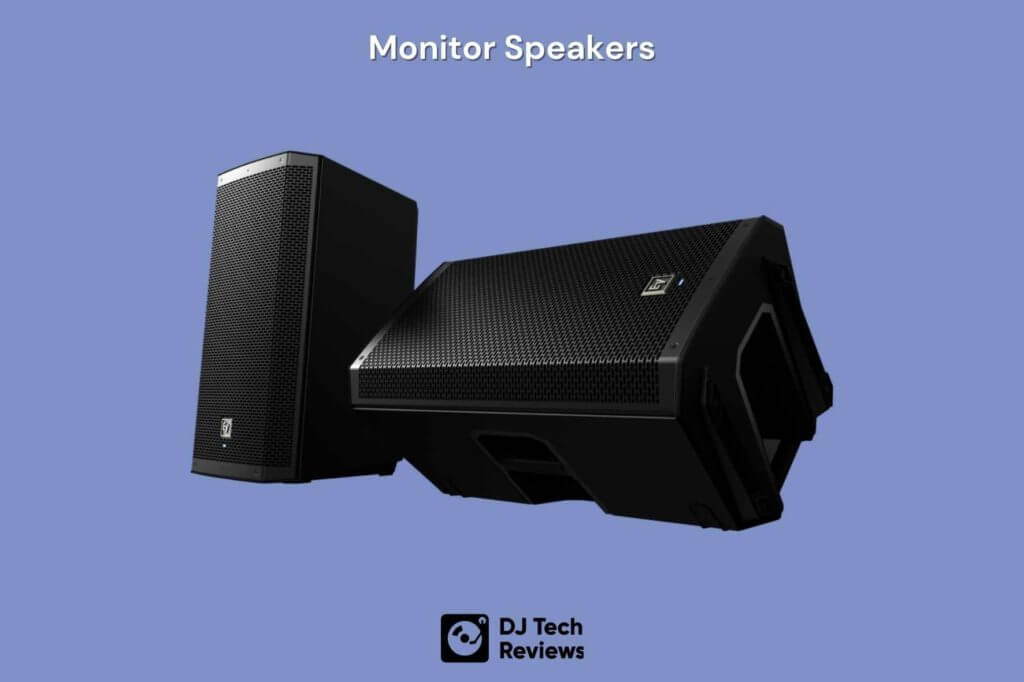Whether you’re a beginner DJ or someone that’s been to their fair share of clubs, there’s a good chance you’ve seen most performing DJs wearing headphones while doing their set. While it may seem odd, there are a few reasons for this – and it isn’t just so that they can drown out all the loud noise.
In this article, we find out why DJs wear headphones. As DJ performances are all about timing, and making sure songs transition perfectly in sync with one another, wearing headphones works to make sure this timing is kept and that there aren’t any missteps along the way that would otherwise ruin an entire performance.

But Are Headphones Really Needed For This?
Many people argue that a DJ wearing headphones is more of an aesthetic visual as opposed to anything particularly integral to their overall performance. Many of these people claim that, a set of headphones simply aren’t capable of being that instrumental in the mixing process for a DJ, and that they just a bit of mystique that’s added to a DJ’s performance.
In this overview, we’ll go over just how wrong that view is. We’ll get into why DJs wear their headphones, whether digital DJs also need headphones, as well as the type of DJ headphones that work best when DJing.
What Is The Purpose Of DJ Headphones?
DJ headphones, while not required for “every” single DJ performance, are useful for a lot of them. The general rule is that, unless the performance doesn’t call for a lot of mixing or blending of tracks, you’re going to want to have a set of quality headphones on you.
The reason for this is due to something known as track blending and beatmatching.
What Is Track Blending?
Track blending (also commonly known as “Blending”) is a term used specifically to refer to the transition process between two different songs. When performed correctly, blending two tracks can make some incredible sounds that ultimately enhance the quality of either song, making something that’s legitimately a delight to the ears.
When performed incorrectly, however, it can be like nails running against a chalkboard (or Styrofoam if you’re too young to know what a chalkboard is). It can sound horrible, come across as very grating to the ears, and almost instantly ruin a DJ’s reputation if done even once.
So, as you can see, track blending is a serious gambit for any DJ, and something you want to use only when properly equipped. DJ headphones are that equipment, as they ensure you can catch the most minute of moments for when you need to set the transition for one song into the other, or to use one effect at that right time.
Headphones work because, without them, track blending would be pretty much an impossibility. The reason track blends are so good is because both songs are playing simultaneously, and it’s only with headphones will you know when to align them with one another and when to have them layered on top of each other.

What Is Beatmatching?
Beatmatching is the other side to track blending. As the two often work hand-in-hand with one another, beatmatching is used to ensure that the beats match one another’s tempo while being layered over one another.
A good way of seeing this is by imagining two tracks as being trains, with their respective beats as carriages on that train. The job of the DJ is to make sure that both “trains” (ie., the two songs) are moving at the same speed. Then, the individual carriages (ie., the beats) would run parallel to one another while running along with the same position. This would be done via the jogwheels as well as the pitch control.
As every track has its time signature, and no two songs are the same, headphones are essential for making sure that the tracks stay in line with one another so that their beats continually match. While most tracks are written out in a 4/4 signature, many recent EDM tracks are known for using a variety of other signatures, further complicating the situation.
What About Digital DJs?
If you’re a DJ that uses the digital display, you may be curious as to why you need headphones. After all, if you’re looking at the audio itself, why should you need to hear as well?
Reason #1. You’re Not Just Beatmatching
The challenge is that beatmatching alone isn’t enough. By looking at the audio and knowing where the beats align, you’re only getting half of the benefit. You also need to remember that you’re blending sounds as well. Just because you manage to perfectly match the beats with one another doesn’t automatically mean the track blending will sound good.
Reason #2. You May Not Have Your Home Setup With You
This is especially true for people who are track blend and beatmatching without a DJ-specific software like Serato or Rekordbox or using a good controller, like one from Pioneer DJ. In these cases, you’re not even going to have the ability to accurately beatmatch, so keep that in mind in case you’re ever in a situation where you’re using a CDJ instead of a controller, or the gig you’re at doesn’t offer any of big-name DJ software types on hand.

Reason #3. Visually Chaotic Waveforms
You also need to keep in mind that, while beatmatching visually is certainly possible, it only really works if you’re dealing with simplified waveforms that don’t have a lot going on. Depending on your situation, it can become a real issue if you come across a waveform that is much more complex. By just using your eyes to visually look over waveforms, you’re putting yourself at a huge disadvantage compared to using your eyes alongside your ears.
The Headphone Cue Button
The headphone cue button is a crucial part of a DJ mixer’s toolbox. When used alongside a set of quality headphones, the headphone cue button allows a DJ to hear sounds from the track before it is played through the speakers. This works even if the channel fader is all the way to the bottom.
When you understand just how incredible this feature is, you’ll realize just how incredible it is to a track’s sound. With it, a DJ can isolate specific parts of a track, locating the beat that you want to play the music on. You then can start beatmatching to various points in the track while using the jogwheels alongside the pitch controls. This results in a pair of blended tracks that can sound incredible to the ears.
This means that, if you’re using the cue button, you’ll be able to know exactly how your track blend sounds before anyone else does, and it’s thanks exclusively to the use of your headphones. If the sound is bad, you can immediately get to work adjusting and tweaking the tracks before your audience catches wind of whatever it potentially would have sounded like.
What’s more, not only would this only really work with the use of headphones, it also wouldn’t work if you were only relying on your eyes to visually beatmatch.

Why DJs Wear Headphones Over Only One Ear
You may see, from time to time, a DJ with a headphone over only one ear, with nothing draped over the other. Like everything else, while this may seem like a neat art style, there’s a practical reason that they’re doing this.
By keeping one ear tuned in to what the crowd is hearing and the other focused on the various areas that we’ve talked about already, a DJ can better fine-tune their mixing while also making slight adjustments around the track’s tempo and EQ.
It isn’t a requirement, and generally, DJs with higher quality headphones and audio players won’t need to do this, instead of trusting everything to what their headphones are putting out. When you start, however, having the “one-off/one on” situation may be an ideal setup to have.
Why Are DJ Monitors Used In Clubs?
If you know what DJ monitor speakers are, you may be confused when you see a DJ sporting them in addition to headphones while also blasting out music to the crowd. It can seem like it’s too much when you think of how many things are playing the same track. The reality is that all three of these things are required for the music to come out as good as it does.
The reason DJ monitor speakers are brought into the fold, alongside headphones, is because there is a slight audio delay that takes place between the audio device and the main sound system that the crowd hears the music through. The delay isn’t anything drastic, and if you just played music, without mixing, the discrepancy wouldn’t matter all that much.
The problem comes when you’re trying to mix music. While the delay may be slight, in terms of sound mixing, it can potentially be a death sentence. DJs that perform despite having this delay can easily become confused about whether their adjustments are making things better or worse, as the delay can cause an echoing sound, easily throwing off their mixing entirely.
DJ monitor speakers act as a sort of “external headphone” specifically for the DJ booth in that they offer the DJ immediate awareness of their sound output due to being played out of an entirely different sound port.

Getting The Ideal Headphones When DJing
When looking for the best DJ headphones, there are several things you want to keep in mind. This is because there is a myriad of different options to choose from when deciding what pair to wear.
In-Ear vs. Over-Ear – The Great Debate
The first thing you’ll want to decide on is whether you should get headphones that are either placed in your ear or wrapped around over your ear. While most DJs generally prefer to wear their headphones over their ears, there are a few that go for the in-ear option. Joe Goddard, as an example, is often seen performing a set with a pair of high-end in-ear headphones.
That, however, is kind of the exception to the rule. And like many other established rules so far, when it comes to DJing, there’s a reason for it.
Often, over-ear headphones will offer stellar sound quality that is difficult for in-ear headphones to compete with; and when they do manage to be comparable, in-ear headphones are often considerably more expensive to make up for it. That’s not even going into the fact that in-ear headphones are notorious for being very easy to break and even easier to fall out of your ear.
A great set to consider is the AIAIAI TMA-2 DJ headphones. Despite being a few years old, these headphones have a great visual and offer an even better audio quality. They’re also modular, meaning each piece is replaceable. This makes accidental drops much less of a pain and much more of a slight annoyance, as you simply need to replace the piece rather than the entire headphone. They also have super comfortable ear cups, which is a huge plus for guys like me who seems to have ginormous ears.

Why Do DJs Wear Headphones: Summary
So I hope that answers, the “why do DJs wear headphones” question for you. At first glance, it can seem a little silly for headphones to play as big a part as they do for a DJ. After all, they are quite literally blasting the music out. It seems a bit silly to think they need to hear it with their headphones. But that’s only part of the puzzle.
DJs gain a tremendous amount of control when using headphones during their set. Not only are they able to listen intently for even the most minute of sound changes and alterations, but they can better link and match the sound beats together to blend and mix songs to create something truly amazing.
By understanding the importance of headphones, why they are used, and what to be on the lookout for when getting your own, you set yourself up to be in the perfect position to create stellar music without fear of creating debilitating sounds that could potentially ruin your entire set (and potentially career).
Get a good set of cans, test them out, and be amazed at how much more refined your DJ performing skills become – virtually overnight.
Related Articles
- Best DJ Headphones (2024): Expert Picks from Sennheiser, Pioneer DJ & More
- Best In-Ear Monitors (2024): Top Picks from Sennheiser, Shure, and More
- Airpods Hurt My Ears! Are Apple AirPods Bad For Your Ears?
- What Should A Mobile DJ Wear? (Do’s, Don’ts, And Be Prepared)
- How to Beatmatch properly: The Ultimate Guide [2024]




